Earlier in the chapters of this book, I have already explained that my purpose has been to highlight the political significance of Shah Latif's poetry. Therefore, I would throw light only on the political aspects of the message of Shah Latif for the Sindhis.
So far the poetry of Shah Latif has been analyzed and viewed mostly in the light of mysticism, but as it is clearly evident it can be studied from every point of view. As far as I understand there is a special message for the people of Sindh in his poetry. If considered deeply his message can prove a great source of guidance for the Sindhis in unraveling and solving most of the political problems faced by them today.
Some of the most significant messages, which are evident in Shah Latif's poetry, are the following:
1. Patriotism
The most important aspect, which Shah Latif has emphasized in his poetry, is the spirit of patriotism. On this particular theme, the essence of his poetry is that only the people who do not possess any sense of honor can neglect and forget it. Sur Marvi is particularly replete with these ~ and sentiments, and Shah Latif not only considers the spirit of patriotism an integral part of faith and religion but also its very foundation.
The political strategy of the rulers of the times of Shah Latif and the rulers of today is almost the same. They, in their time, paying lip service to Islam and Islamic Shariah indulged themselves in domesticating dogs, hunting, luxurious living and wasting the major portion of the wealth of the country in maintaining their hold and power, and there existed no conformity between their word and deed. To a great extent, the present rulers are following the same policy. As in those days, people were deprived of their right to free expression of opinion and ideas. The conditions are no different today. As in those days in the name of Islamic brotherhood, people were deprived of the right to free expression of their opinion and ideas, the conditions prevailing today are no different.
Therefore, if we do not derive the idea of Sindhi nationalism from his poetry, then the entire Sur Marvi, which is the very essence of Shah Latif's poetry, becomes merely purposeless and traditional. I have already mentioned that since the earliest time of Islamic history there have been two different types of Muslims. Those who have a conception of the progress of humankind on the basis of patriotism and those who are desirous of the leadership of humankind through wielding power over them. Both these groups have their own arguments to justify their ideas, the brief account of which has been presented earlier. It would be quite adequate to emphasize that Shah Latif subscribed to the former school of thought, and for this very reason he has expressed his admiration of the spirit of patriotism. The terminology used for both these above-mentioned views in the present time can be "nationalism" and Pan-Islamism.
Shah Latif advocated the conception of nationalism and patriotism, which are synonymous terms. One thing should be made clear that the Sindhis who are the admirers of Shah Latif also desire to be the followers of Dr. Iqbal. Either they have failed to comprehend the essence of the ideas or thought of both these poets or they are deliberately trying to deceive themselves as well as others. No one can set his foot in two boats travelling in opposite directions.
The conclusion of the above discussion is that the first message of Shah Latif expresses his love of the objectives of the political, economic, intellectual freedom and the progress of Sindh, and this can indeed be the significance of patriotism for the people of Sindh.
2. Self-knowledge
Great stress has been laid on the concept of self-knowledge ~ the poetry of Shah Latif. Most of the people have interpreted this concept of self-knowledge as "spiritual elevation and consciousness" from the point of view of mysticism. They say in accordance with the philosophy of pantheism, "your beloved (God) is an integral part of your self, and it is a futile exercise to search it beyond your self." After you have been blessed with inner enlightenment you simply need to look into your soul, and you will be blessed with the vision of your beloved. Shah Latif says:

In the same manner the people of Sindh have an ideal before them and in the identification of this ideal lies the secret of the "self-knowledge" of the Sindhi people, and the ideal of the Sindhi people is that when the nations of world are invited to assess the value of the twine spun by them, and when the judge of their craftsmanship is called upon to give his decision, they should be able to prove their worth, so that they do not have to hang their heads in shame.
This aim can be achieved only when every native of the land of Sindh learns to sacrifice his personal and class interests over the collective and common interests of the nation. In the practice of the concept of self-knowledge there hag to be elimination of the individual and survival of the nation. The most essential lesson of self-knowledge is to let the individual self be absorbed in the nation. Shah Latif says:

3. Fearlessness and Courage
The third message of Shah Latif for the people of Sindh is to develop the virtue of courage. The nation, which becomes a prey to the evil of fear, would neither be able to achieve independence nor progress. If they are infused with the spirit of faith there would be no place for fear in their hearts. However, if they are overwhelmed by fear, it would signify lack of faith. A Muslim has no weight and significance if he does not have faith. Fear can only possess their hearts if there is cowardice, ignorance, inferiority complex and disunity among them. If some selfish and self-interested elements are guilty of oppression against the people with the purpose of consolidating and maintaining their power and hold over them, taking advantage of their mutual conflicts and even civil war, the foreign elements succeed in enslaving the entire nation through their terrorist activities, and people are deprived of courage and determination as a consequence of fear and inferiority complex. Under such circumstances, the struggle for independence is not a child’s play. On this arduous path there has to be courage which brushes away the fear of consequences and requires men to be prepared to let their heads be severed from their bodies. One has to cross the vast oceans of fear, in which the ferocity of the turbulent sea and the whirlpools can shake the will, in which the ships of enormous bulk can easily be swallowed up and disappear, where in whichever direction one looks, there are innumerable crocodiles and sea monsters waiting restlessly to swallow their prey. It is indeed a very delicate situation. However, those who are devoted and dedicated to achieve their aim and those who possess indomitable courage, succeed ultimately to cross the ocean. Expressing his sentiments of admiration for such people Shah Latif says:

4. The Spirit of Sacrifice
The fourth message of Shah Latif for the Sindhi people is to have the courage to sacrifice their personal, class and party interests over the progress and independence of the nation and the country. No nation can hope to achieve the goal of progress whose people are not infused with the spirit of sacrifice for the nation and the country. Shah Latif says:





5. The companionship and support of the oppressed
For every Sindhi the message of; shah Latif mentioned above holds a tremendous appeal, but he was aware of the fact that it was not easy to develop such virtues, and attaining the goals of freedom and progress required facing extraordinary obstacles and difficulties.
In this journey lay the burning deserts and exhausting wildernesses, and in which stood the Rocky Mountains. For the exhausted and weather-beaten traveler there was nothing to boost his spirit on the path which presented a picture of terrible devastation all around. The rocks and stones further aggravated the situation. These are forests infested with poisonous snakes ready to attack the travelers. Under such precarious situation, even the fellow travelers are forced to deceit, and only those people can march ahead who are bestowed will iron will and are firm of heart, and who are simply obsessed with the idea of reaching their goal.
Therefore, the message of Shah Latif is especially intended for the working and oppressed Sindhi people. He has at various places in his poetry particularly addressed the poor laboring people, the cowherds and shepherds, the poor tenants sweating in the fields of their masters, those who have made the forests and the wilderness their home, the fishermen who catch fish with primitive methods, the boatmen, and those who appreciate and admire truth and entertain the feeling of sympathy for others. Shah Latif has expressed his love for these people and has interpreted their feelings and highlighted their character.
He was fully aware of the fact that his counsel and message would leave those apathetic people unaffected who are hostile and unfriendly toward the people, aspire to high positions, accumulate wealth, love comfort and pleasure, crave for sensual pleasures, the self-righteous, inveterate gluttons, profiteers, those who sacrifice and betray the interests of the country and the nation, for the influential position in the government; who connive at oppression out of fear, who act as sycophants toward the foreigner to secure personal benefits, who hypocritically raise religious slogans despite their unethical conduct, who exploit the poor, the illiterate ignorant and indigent nomads for their personal advantage and those who believe in acquiring and establishing power through oppression and injustice. Shah Latif speaks in no uncertain terms about the people of such character:







The leaders who do not develop these characteristics and prefer the comforts of today rather than building a future and sacrifice the national interests over the personal and selfish interests, and the collective national interests over the interests of a class, Shah Latif expresses his sentiment about such people in the following verse:




The courage and honor which the national leaders acquire through getting accustomed to a life of struggle, and the aspiration which are born in them to confront every difficulty in the service of the country are described by Shah Latif in the following manner:


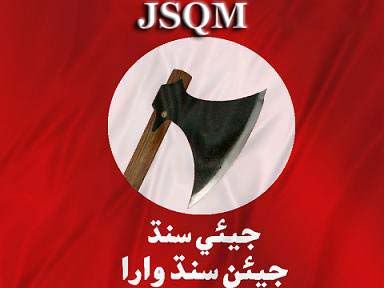
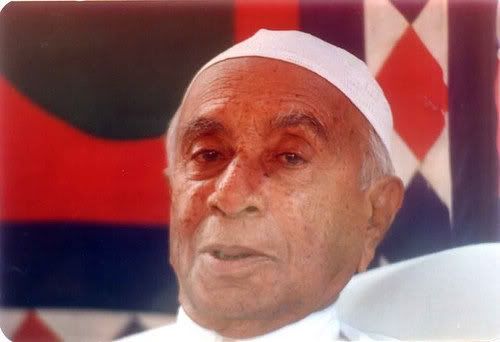

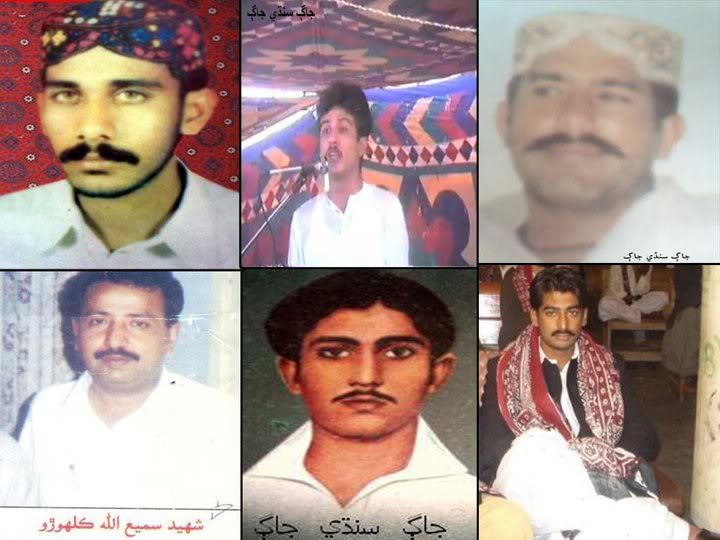
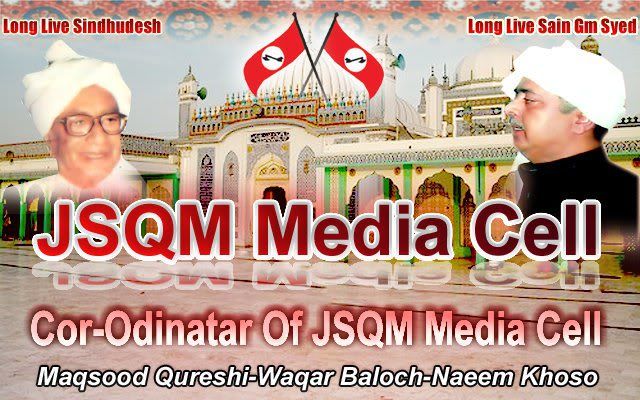



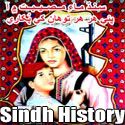






Currently have 0 comments: